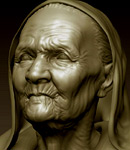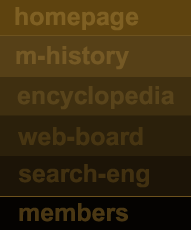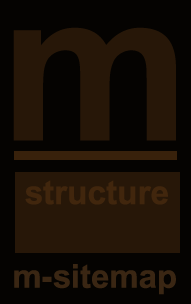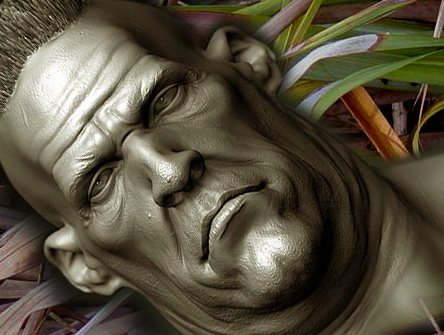![]()
![]()
![]()
![]()
![]()
![]()
![]()
![]()
![]()
![]()
![]()

บรรณาธิการแถลง: บทความทุกชิ้นซึ่งได้รับการเผยแพร่บนเว็บไซต์แห่งนี้
มุ่งเพื่อประโยชน์สาธารณะ โดยเฉพาะอย่างยิ่ง เพื่อวัตถุประสงค์ในการขยายพรมแดนแห่งความรู้ให้กับสังคมไทยอย่างกว้างขวาง
นอกจากนี้ยังมุ่งทำหน้าที่เป็นยุ้งฉางเล็กๆ แห่งหนึ่งสำหรับเก็บสะสมความรู้ เพื่อให้ทุกคนสามารถหยิบฉวยไปใช้ได้ตามสะดวก
ในฐานะที่เป็นสมบัติร่วมของชุมชน สังคม และสมบัติที่ต่างช่วยกันสร้างสรรค์และดูแลรักษามาโดยตลอด.
สำหรับผู้สนใจร่วมนำเสนอบทความ หรือ แนะนำบทความที่น่าสนใจ(ในทุกๆสาขาวิชา) จากเว็บไซต์ต่างๆ
ทั่วโลก สามารถส่งบทความหรือแนะนำไปได้ที่ midnightuniv(at)gmail.com
(กองบรรณาธิการมหาวิทยาลัยเที่ยงคืน: ๒๘ มกาคม ๒๕๕๐)

Human Right Context
Midnight University

![]()
![]()
![]()
ตัวบท และกรณีตัวอย่างของการต่อสู้เรื่องสิทธิมนุษยชน
โครงการสื่อเพื่อบริบทสิทธิมนุษยชน: จากชายขอบถึงศูนย์กลาง
มหาวิทยาลัยเที่ยงคืน
: รวบรวม
โครงการความร่วมมือระหว่างมหาวิทยาลัยเที่ยงคืน
และนักวิชาการอิสระ-สถาบัน ฯลฯ
ปัจจุบันกระแสโลกาภิวัตน์ดูเหมือนจะเป็นยูโธเปีย(utopia)
สำหรับประเทศศูนย์กลาง
แต่ขณะเดียวกันกระแสโลกาภิวัตน์นี้กลับกลายเป็นยูโธปลอม(dystopia) ของบรรดาประเทศชายขอบทั้งหลาย
เนื่องจากได้นำมาซึ่งการสูญเสีย และกดขี่ทางด้านสิทธิมนุษยชนอย่างเป็นรูปธรรม
ทั้งทางด้านความยุติธรรม ความเท่าเทียม อิสรภาพ และการพัฒนาที่ยั่งยืน
ไม่ว่าจะมองจากมิติทางด้านการเมือง เศรษฐกิจ สังคม วัฒนธรรม และกฎหมาย ฯลฯ
โดยสื่อหลายแขนงทำหน้าที่กล่อมเกลาให้สิ่งเหล่านี้ดำรงอยู่และเป็นที่ยอมรับ แทนที่จะตั้งคำถาม
โครงการสื่อเพื่อบริบทสิทธิมนุษยชน มหาวิทยาลัยเที่ยงคืน เกิดขึ้นมาจาก
การเล็งเห็นถึงปัญหาเหล่านี้ที่กำลังคุกคามผู้คนและพยายามที่จะแสวงหาตัวบท
พร้อมทั้งกรณีตัวอย่างในที่ต่างๆ มานำเสนอ เพื่อทำความเข้าใจสถานการณ์โลก
ที่ค่อนข้างสลับซับซ้อน และทางออกที่หลากหลายในประเทศชายขอบต่างๆ
เพื่อประโยชน์ต่อสังคมไทยนำไปปรับประยุกต์กับสถานการณ์
สำหรับผู้สนใจ สามารถส่งบทความเข้าร่วมกับโครงการได้ที่
midnightuniv(at)gmail.com
+++++++++++++++++++++++++++++++++++++++++++++
Human Rights in Context:
from Periphery to Mainstream
Organization: Midnight
University
Chiangmai 50202 Thailand
Email:
midnightuniv(at)gmail.com
Website: http://midnightuniv.tumrai.com
Organization type:
Non - profit organization / alternative education based political approach
Contract person:
Associate Prof. Somkiat Tangnamo
(Midnight University Rector)
Project type:
Media and information
Project title: Media Project on "Human Rights
in Context: from Periphery to Mainstream"
Location: Thailand
Research duration: 2007-2008
Brief project summary:
The ideal body of this media project by Midnight University has been set according
to the lack of information translated properly in Thai language concerning
human rights situation in the present. It has become a believe for the project's
implement that this project will function as a knowledge capsule for that
it can be used widely for further equal negotiation regarding liberation,
equality, and justice in the age of information war. By surveying examples
of political strategies by activists from marginal countries around the world,
this media project has set the aim paving ways to effective social movements
for Thai social activists and scholars.
Problem Statement:
It is believed that globalization is a "utopia" purposively for
only some countries that are able to utilize its access to resources and knowledge
of technologies, new world order of laws, and business marketing, namely for
some countries from the center. However, globalization can be critically realized
as a "dystopia" by countries from periphery.
When every corners of the world has become united, and now globalized, it first of all was promised that every man would be equal under the name of rights in all facades of its idea. As for its result, vast arguments had never been brought to the light till we happen to realize that globalization creates miserable problems on human rights violations, rather than preceding successfully its guarantee of justice, equality, and liberation. Further more globalization has spurred vastly difficulties, problems, and dilemmas of the ideas of development in all respects politically, economically, socially, and culturally. Finally, it seems that the idea of sustainable development has never been listed in a serious discussion of globalization project.
Through concepts of neo-liberalism political economy, globalization has been capable of mentioning human rights to intervene, intrude, or even determine economic and politic administration of many countries in Latin America, Asia Pacific, Africa, and Eastern Europe. They have become targets of globalization. Thailand is one example among other countries in such regions mentioned where arguments on human rights, equality, justice, liberation, gender, and etc have been aroused. Critical discussions are pointed at the formation of an ideal geography of democratic values that globalization created - in terms of economic, artistic, social and cultural practices as a result of tradition and development of the Western world view as somehow opposed to the ways to which indigenous people have responded. Muslims in Thailand is crucial in this case as for how they understand concepts of human rights.
Through out many last decades in Thailand, there have been explicit conflicts over elusively political and economic benefits assured implicitly by means of institutional organization in association with the forces of globalization. They are conflicts where some handful people by different poles of power flight over each other to gain opportunities of having been close to and hooked up with what the mainstream should have provided. Moreover they have attempted to propagate ideological differences which have led common people to political wars at large. And, finally allowed by institutional power all benefit is portioned and allocated among them. Common people are excluded from this type of benefit based politically decision making. Needs and voices of people have never been heard. And, their rights to live are politically directed and determined. They have no alternatives.
Concerning Social Media
in Thailand
Media and universities in Thailand should have shown or revealed some hidden
agendas of those kinds of social illness, and offered other possible choices,
alternative ways of thinking. Rather they tend to implicitly represent, or
even reinforce what the mainstream agrees with. A door opening to negotiation
to live well and to seek for alternative ways of living of people is closed
before any one realizes that there is one, or many.
Where there is life there is always hopes. Nowadays, many academics and independent organizations begin to think of stepping out side of strictly institutional bonds and find some niches to position different ideological groundwork. Midnight University was started by such spirit. It is consisted of people who agree that there are always alternatives as long as we attempt to find one, and there are many as possible as we will make ones.
Social Activity Implemented by Midnight University
Since 1997 initiated by 15 scholars with different backgrounds in Laws, Science, Fine arts, Political Sciences, History, and Medical Sciences, Midnight University has taken radical steps towards social criticism and put all activities taking place both at the University's classrooms, lectures, discussions, and at many sites specific of problems, where we went to pay a visit and help stirring up all together with local people, into actions. By doing so, tremendous numbers of dialogues, critical writings and essays are submitted to our website by independent researchers, writers, and also by our staff. During the period of years 2000 -2003, Midnight University had run a special TV program where public opinions regarding political situation and people rights in Thailand at the time were drawn in.
Launched onwards from the year 2000, Midnight University website (http://midnightuniv.tumrai.com) have been gradually added NGOs information links, research articles, and essays in addition to the classified knowledge encyclopedia where English texts are translated in Thai in various topics. Those have become the resources for further thought and re-thinking for academics, journalists, students, and people at large. They eventually help opening up new discussions critically and creatively.
In addition, by using the availability of new media, namely in this case the internet tool, Midnight University website constantly raises up initial social dialogues. The population of Website users gradually has growth in greater numbers each day. Approximately, there are 200,000 IP have signed in and over 20,000 articles, writings, and essays have been downloaded. This can be considered as a new phenomenon of an alternative education as well as an opening of a new page of understanding in new media as a social action and criticism in Thailand. Judging by such impacts, Midnight University website is a political project per se rather than only just information archives.
Why Media Research Project
According to all problems of issues involved human rights concern mentioned above, this media project aims at seeking for alternative ways of thought to crack it open some wounds swelled on the body of the mainstream based institution in Thailand. Its goal is also at giving some good examples of counter practices that allow more working spaces for marginal academics and non-mainstream organizations, which, as a result, should also constitute public spaces of new social movement, dialogue and understanding about human rights.
Conclusively, this media project does not provide an end after its research duration. It should rather constitute a continuity of further consequences of negotiation, liberation, justice, and sustainable development of the people from the periphery.
Research Topics Design
For this project, the
decision on research topics is based on the necessity and importance due to
information deficiency concerning human rights situation in the subjects as
following:
- Media & Non-Mainstream Concept.
- Latin-America & Eastern Europe and Neo-Liberalism.
- Human Right & political economy and Globalization.
- Liberal Islam & Muslim Globalization.
- Gender Studies & Queer Theory.
- Ethic Art & Visual Culture and Postmodern concept.
- Law & Politics, Political activist and Columnist.
- Political media & Political science.
(view topic - detail and Reference)
Research Activity Materializing
- On the website of Midnight University (http://midnightuniv.tumrai.com)
- In monthly Thai newspaper.
Research Goals &
Objectives
It is the goal of this media project to open up social dialogue where justice,
equality, freedom, and sustainable idea are taken into more serious considerations
and action.
To achieve this goal
this project has set the following as critical component objectives:
- To understand complicated predicaments involved human rights problems in Thailand
and some other marginal countries.
- To validate complexity of human rights problems rooted in multiple dimensions politically,
economically, socially, and culturally.
- To learn alternative solutions regarding human rights crisis by other marginal countries.
- To find possibilities of adaptation and applying such solutions that suite well human rights
situations in Thailand.
Application advantages
- Having literature reviews and historical archives of knowledge, theories, and descriptions of counter practices concerning human rights situations in Thailand and other countries from the peripheral.
- Having results of the media project distributed via Midnight University website and newspaper.
- Having discussion meetings open to public, critiques, and opinions by academics invited.
- Gathering all discussions, opinions, and critiques for further public reporting through Midnight University website.
Research Designs, scope and methods
- Classifying and allocating research topics according to specialties of each academics
and having a monthly works check up.
- Organizing monthly discussion meeting and inviting academics' critiques.
- Evaluation for the project works improving after the sixth month of procedure.
- Preparing selected works in each allocated sections for publication on newspaper after
the ninth month.
- Organizing a final discussion conference open to public.
- Having final concluded reports distributed via Midnight University website.
Evaluation
- Feedback via the Midnight University interactive web board / open source archive responding
- On-going critics open to public by invited scholars after the sixth and ninth month
Research time line
The duration of this media project is 12 months. (from 1st November 2007 to 31st October 2008)
+++++++++++++++++++++++++++++++++++++++++++++
View topic - detail
(A)
Introduction: Human Right
(a). The General Idea of Human Rights
(b). The Existence of Human Rights
(c). Which Rights are Human Rights?c.1. Civil and Political Rights
c.2. Social Rights
c.3. Minority and Group Rights
c.4. Environmental Rights(d). Are Social Rights Genuine Human Rights?
(e). International Human Rights Law and Organizations
1. Technological impacts on human rights:
Models of development, science and technology, and human rights1.1 Enlightenment, the open industrial society, and human rights
1.2 Development, choice, and human rights2. Democracy, human rights and the impact of scientifc and technological development in Venezuela
2.1 Theoretical and political implications of the definition of human rights
in relation to scientific and technological development
2.2 The Latin American experience
2.3 Model of development, basic needs, and human rights in an oil economy:
the case of Venezuela
2.4 Science, technology, and the Venezuelan political system3. Technology and human rights: critical implications for Thailand
4. Human rights and technological development: Eastern Europe and Poland4.1 Preface: objective and methodology of the project
4.2 General evaluation of Eastern Europe as a political region
4.3 The special nature of the polish empirical approach to human rights
4.4 Interaction between human rights and technological development in Poland
4.5 Interrelationship between the basic character of human rights and development
of traditional technologies
4.6 Interrelationship between human rights and advanced technologies5. The impact of modern science and technology on human rights in Ethiopia
6. Western European case-study: The impact of advanced methods of medical treatment
on human rights(B)
1. Globalization and Human Rights
2. Globalization on ...2.1 Concentration of Wealth
2.2 Consequences to the poor3. An alternative to Washington Consensus: Cases from Developing Countries
4. Network Economy and Civil Society
5. Gender and Economic Development
6. Effects of Globalization on Workers' Rights: A Case of China
7. Economic Rights of Ethnic Groups in Indonesia
8. How Nationalism Economic Policy Affects the Poor: A Case of Malaysia
9. Being Poor in the Rich Country: A Case of Singapore
10. Business and Corporate Responsibility toward Human Rights in BurmaReference
- Brysk, Alison "Globalization and Human Rights" University of California Press, 2002.
- Gamer, Robert E. "The Politics of Urban Development in Singapore" The Journal of Politics, 1973.
- Hank, Steve H. and Walters, Stephen J. K. "Economic Freedom, Prosperity, and Equality:
A Survey", The Cato Journal, 1997.
- Maassarani, Tarek F., Tatgenhorst Margo D., and Pajkowska, Joanna "Extracting Corporate
- Responsibility:Towards a Human Rights Impact Assessment" Cornell international law journal, 2007.
- Schuler, Douglas and Day, Peter "Shaping the network society: the new role of civil society in cyberspace" The MIT Press, 2004.
- Sachs, Jeffrey D. "The End of Poverty: Economic Possibilities for Our Time" Penguin Press, 2005
- Smeeding, Timothy "Poor People in Rich Nations: The United States in Comparative Perspective", Luxembourg Income Study, 2005.
- Than, Tin Maung Maung "State Dominance in Myanmar: The Political Economy of Industrialization" Institute of Southeast Asian Studies, 2006.
(C)
The Subjects of Political media & Political science.
1. Civil Society and Political Society.
2. Approaching Alternative Media: Theory and Methodology.
3. Radical Media: The Political Organization of Alternative Communication.
4. Radical Media: Rebellious Communication and Social Movements.
5. The Right to Communicate.
6. Media Culture: Cultural studies, identity and politics between the modern and the postmodern.
7. The Politics of World Communication: A Human Rights Perspective.
8. Key Concepts in Communication and Cultural Studies.
9. Participatory communication for social change.
10. Censored Media Democracy in action 2007.(D)
1. Labor and Human Right- Francis Calpotura, "Remittances: For Love and Money,"
(Washington, DC: Foreign Policy In Focus, August 14, 2007), http://fpif.org/fpiftxt/4467.
- Annick Coupe & Marie Perrin, "France's extraordinary movement,
http://www.isj.org.uk/.
- Benjamin Dangl, Cer?mica de Cuyo: A Profile of Worker Control in Argentina,
http://www.zmag.org/weluser.htm; June 21, 2007.
- Diego Rosemberg, "WITHOUT A BOSS: A WORKER-RUN TEXTILE FACTORY IN MONTEVIDEO, URUGUAY," http://upsidedownworld.org/; Wednesday, 19 October 2005.
- Marie Trigona, "Argentina: Hotel Bauen's Workers Without Bosses Face Eviction," Toward Freedom; August 16, 2007.
- Marie Trigona, "Recuperated Enterprises in Argentina: Reversing the Logic of Capitalism," Citizen Action in the Americas Profile (Silver City, NM: International Relations Center, March 17, 2006),
http://americas.irc-online.org/amcit/3158.
- Marie Trigona, "Worker Self-Management in Argentina,"
http://www.zmag.org/weluser.htm; May 25, 2006.2. Land and Human Right
- Benjamin Dangl, "Land as a Center of Power in Bolivia,"
http://www.zmag.org/weluser.htm; December 08, 2006.3. Media and Human Right
- Marie Trigona, "Community Television in Argentina: ?gora TV, a Window for Liberation," Americas Program Citizen Action Profile (Silver City, NM: International Relations Center, April 25, 2007), http://americas.irc-online.org/amcit/4173.
4. Natural resource and Human Right
- Public Citizen, "Water Privatization Case Study: Cochabamba, Bolivia,"
http://www.zmag.org/weluser.htm.- Rutgerd Boelens and Hugo de Vos, "Water Law and Indigenous Rights in the Andes,"
http://209.200.101.189/publications/csq/csq-article.cfm?id=1867; Tuesday, 21 March 2006.5. Education and Human Right
- Sammy Loren, "Argentina: A Kindergarten Joins Movement,"
http://www.upsidedownworld.org; Monday, 23 January 2006.6. Peace movement
- Conn Hallinan, "Light among the Ruins," (Silver City, NM & Washington, DC: Foreign Policy In Focus, September 7, 2006), http://www.fpif.org/fpiftxt/3495.
7. Social movement in Latin America
- Ivan A. and eleusa, "The "Piquetes": Argentina's unemployed build direct democracy for basic needs, [email protected].
- Gerard Coffey, "THE ART OF THE POSSIBLE IN ECUADOR: Rafael Correa and Twenty First Century Socialism," http://www.focusweb.org/.
- FORREST HYLTON and SINCLAIR THOMSON, "THE CHEQUERED RAINBOW," http://www.newleftreview.net/NLR26903.shtml.
- Dru Oja JAY, "Direct Action, Direct Democracy," Monkeyfist.com; Thursday, 14 March 2002.
- Christian Rudel, "Bolivia - From colonialism to Indianism," Bolivia Rising; May 14, 2007.
- Alain Touraine, "Two Opposing Solutions to Latin America's Two-Sided Problem," http://www.envio.org.ni/index.en november 2006.
- Raul Zibechi, "Survival and Existence in El Alto,"
http://www.counterpunch.org/zibechi10142005.html; October 14, 2005.- Raul Zibechi, "Social Movements in 2007: Securing autonomy, retaking the initiative," http://www.zmag.org/weluser.htm; January 20, 2007.
8. Ideal seek
Noam Chomsky, "Government in the Future,"
http://joephantom.blogspot.com/2007/06/government-in-future-noam-chomsky.html.Rebecca Solnit, "Welcome to the Impossible World," TomDispatch; May 14, 2006.
9. Alternative Economy
- Walden Bello, "THE POST-WASHINGTON DISSENSUS,"
http://www.focusweb.org/focus-on-trade.html?Itemid=1; September 2007.- ROBIN BLACKBURN, "FINANCE AND THE FOURTH DIMENSION,"
New Left Review 39, May-June 2006.- Robin Broad and John Cavanagh, "The Hijacking of the Development Debate:
How Friedman and Sachs Got It Wrong," WORLD POLICY JOURNAL; SUMMER 2006.
- Thomas I. Palley, "From Keynesianism to Neoliberalism: Shifting Paradigms in Economics," http://www.thomaspalley.com/; April 2004.- Thomas I. Palley, "RETHINKING TRADE AND TRADE POLICY: Gomory, Baumol, and Samuelson on Comparative Advantage," http://www.thomaspalley.com/.
- Thomas Palley, "The Economics of Globalization: A Labor View," Science and Technology Policy Yearbook 2000, http://www.thomaspalley.com/.- THOMAS I. PALLEY, "THE FALLACY OF THE REVISED BRETTON WOODS HYPOTHESIS: Why Today's International Financial System Is Unsustainable," http://www.thomaspalley.com/.
- Thomas I. Palley, "The Troubling Economics and Politics of the US Trade Deficit," http://www.thomaspalley.com/.10. Social worker: Interview
- David Barsamian, "A World Without Borders: An interview with Howard Zinn,"
Z Magazine Online; April 2006.- Noam Chomsky and Gabriel Matthew Schivone, "Responsibility and War Guilt: A Culture-Setting Intelligentsia," http://www.zmag.org/weluser.htm; August 16, 2007.
- John Holloway and Marina Sitrin, "Against and Beyond the State: An Interview with John Holloway," http://www.zmag.org/weluser.htm; May 10, 2007.
(E)
1. Women in Legal System
2. Law and Sovereignty
3. Law and Religion
4. The Wider Implication of the Rule of Law
5. Justice
6. Globalization and Changing Law
7. Equality and the Rule of Law
8. Legal PluralismReference
- Michael Freeman. Human Rights. TJ International, Padstow, Cornwall, 2002
- Wade Mansell, Belinda Meteyard and Alan Thomson. A Critical Introduction to Law. 2nd
edition. London, Sydney: Cavendish Publishing Limited, 1999.
- M.B. Hooker. Legal Pluralism: An Introduction to Colonial and Neo-Colonial Laws.
Oxford: Clarendon Press, 1975.
- http://org.law.rutgers.edu/publications/law-religion/articles/Saloom.pdf(F)
1. Discourse of Others.
2. Creativity and Human Rights.
3. Certainty of Uncertainty: Art of Empowerment.
4. Public Memory and its Contested Terrain.
5. The Visual Practices of Freedom.
6. Object Relations: Politics of Interpretation.
7. Cultural Governance: Politics of Reality.
8. Historical Liberation in Baudrillard's Artistic Expression.
9. The Social Sites of Production.
10. Cultural Imagination in Indigenous Media.Reference
- Baudrillard. Jean. 1981. For a Critique of the Political Economy of the Sign. St.Louis: Telos Press.
- _____________. 2005. Conspiracy of Art. Cambridge: The MIT Press.
- Crowther, Paul. 1996. Critical Aesthetics and Post Modernism. Oxford: Clarendon.
- Gamman, Lorraine and Marshment, Margaret, ed. 1989. The Female Gaze: Women as Viewers of Popular Culture. Seattle: The Real Comet Press.
- Gingburg, Faye, Abu-lughod, Lila, Larkin, Brian, ed. 2002. Media Worlds. London:
University of California Press.
- Hebdige, Dick. 1999. Subculture: The Meaning of Style. London and New York: Routledge.
- Karp, Ivan and Lavine, D. Steven (edit), 1991). Exhibiting Cultures: The Poetics and Politics of Museum Display. Washington & London: Smithsonian Institution Press.
- Mirzoeff, Nicholas. 1995. Bodyscape: Art, Modernity and the Ideal Figure. London and New York: Routledge.
- _______________. 2000. Diaspora and Visual Culture: Representing Africans and Jews. London and New York: Routledge.
- ____________. 1999. Cinematic Political Thought: Narrating Race, Nation and Gender. Edinburgh: Edinburgh University Press.
- Shapiro, Michael. 2004. Methods and Nations: Cultural Governance and the Indigenous Subject. London and New York: Routledge.(G)
Exploration of Gender - Sexuality - Society session:
1. Overview Gender and Sexuality Discourses and Related Theories- Jane Rendell, 'Introduction: Gender' in Jane Rendell, Barbara Penner and Iain Borden (eds), Gender Space Architecture: An Interdisciplinary Introduction (London: Routledge, 2000), pp. 15-24.
- Marysia Zalewski, 'Introduction: Different Feminist Theories' in Feminism After Postmodernism: Theorising Through Practice (London: Routledge, 2000), pp. 1-28.2. Gender - Sex - Society
- Luce Irigaray, 'This Sex Which Is Not One' in Jane Rendell, Barbara Penner and Iain Borden (eds), Gender Space Architecture: An Interdisciplinary Introduction (London: Routledge, 2000), pp. 60-6.
- Gayle S. Rubin, 'Thinking Sex: Notes for a Radical Theory of the Politics of Sexuality' in Henry Abelove, Michele Aina Barale, and David M. Halperin (eds), The Lesbian and Gay Studies Reader (London: Routledge, 1993), pp. 3-45.3. Gender - Sex - The Problem of Representation
- Stuart Hall, 'Deviance, Politics, and the Media' in Henry Abelove, Michele Aina Barale, and David M. Halperin (eds), The Lesbian and Gay Studies Reader (London: Routledge, 1993), pp. 62-90.
4. Gender - Sexuality - Historical Exploration
-David M. Halperin, 'Is There a History of Sexuality' and John D'Emilio, 'Capitalism and Gay Identity' both in Henry Abelove, Michele Aina Barale, and David M. Halperin (eds), The Lesbian and Gay Studies Reader (London: Routledge, 1993), pp. 416-31 and pp. 467-78.
5. Gender - Sexuality - Subjectivity
- Judith Butler, 'Imitation and Gender Insubordination' in Henry Abelove, Michele Aina Barale, and David M. Halperin (eds), The Lesbian and Gay Studies Reader (London: Routledge, 1993), pp. 307-20.
6. Gender - Sexuality - Female Body
- Elizabeth Grosz, 'Body Images: Neurophysiology and Corporeal Mappings' in Volatile Bodies: Toward a Corporeal Feminism (Bloomington: Indiana University Press, 1994), pp. 62-85.
7. Gender - Sexuality - Male Body
- Graeme Storer, 'Rehearsing Gender and Sexuality in Modern Thailand: Masculinity and Male-Male Sex Behaviours' in Peter A. Jackson and Gerard Sullivan (eds), Lady Boys, Tom Boys, Rent Boys: Male and Female Homosexualities in Contemporary Thailand (New York: Harrington Park Press, 1999), pp. 141-60.
8. Gender - Sexuality - Imaginary Space
- Edward W. Soja, 'Spatialization: Marxist Geography and Critical Social Theory' and 'Reassertions: Towards a Spatialized Ontology' both in Postmodern Geographies: the Assertion of Space in Critical Social Theory (London: Verso, 1993), pp. 43-75 and pp. 118-37.
- Doreen Massy, 'Space, Place and Gender' in Space, Place and Gender (Oxford: Polity Press, 2003), pp. 175-249.
- Liz Bondi, 'Locating Identity Politics' in Michael Keith and Steve Pile (eds), Place and the Politics of Identity (London: Routledge, 1993), pp. 84-101.
9 Gender - Sexuality - Physical Space
- Jane Rendell, 'Introduction: Gender, Space' in Jane Rendell, Barbara Penner and Iain Borden (eds), Gender Space Architecture: An Interdisciplinary Introduction (London: Routledge, 2000), pp. 101-11.
- Jane Rendell, 'Chapter 1: The Pursuit of Pleasure' in The Pursuit of Pleasure: Gender, Space and Architecture in Regency London (London: Athlone Press, 2002), pp. 1-29.
10 Gender - Sexuality - Queer Space
- Richard Dyer, 'The Politics of Gay Culture' in The Culture of Queer (London: Routledge, 2002), pp. 15-30.
- Michael P. Brown, Closet Space: Geographies of Metaphor from the Body to the Globe (London: Routledge, 2000), pp. 1-26.
- Aaron Betsky, Queer Space: Architecture and Same-Sex Desire (New York: William Morrow and Company, Inc., 1997), pp. 2-15.
(H)
1. "Denial of Access" in The Right to know; Access to information in Southeast Asia
By Bertil Lintner (author), Edited by Sheila S.Coronel. Publisher: Raintree Publishing, Inc.,
Quezon City, 2001
2. "Aung San Suu Kyi: a Revolution of the Spirit " in Living Faith: How Faith Inspires Social Justice
By Curtiss Paul De Young, 2007. Publisher: Augsburg Fortress, Minneapolis
3. "Ceasefires and civil society: the case of Mon" in Ethnic Diversity in Burma
By Ashley South (Author), edited by Mikael Gravers. Publisher: NIAS Press, Copenhagen, 2007
4. "Education: Floating Books and Bathroom Tracks" in Living Silence: Burma Under Military Rule
By Christina Fink. Publisher: White Lotus, Bangkok, 2001
5. "Shan women and girls and the sex industry in Southeast Asia; political cause and human rights implications" in Social Science & Medicine 53, 2001, Chris Beyrer (Author)
6. Media restriction and recent situation of the press in Burma
References:
- Lisa Brooten, "Political violence and journalism in a multi-ethnic state: A case study of Burma (Myanmar)" . Theme Issue: Political Violence in the Media Spotlight, Journal of Communication Inquiry, October, 2006
- Anna J. Allott, Burmese Storytellers and the Censors by Chiang Mai, Thailand: Silkworm Press, 1994
- State of Fear: Censorship in Burma, Article 19 's Country Report, 19917. Religious Rights in Burma: A case of Muslims
References:
- The Muslims of Burma: A study of a minority Group, by Moshe Yegar, 1972, Otto Harrassowitz. Wisbaden
- Rohingya Reader I and II by Burma Centrum Netherland 1996
- Ethnic and Religious Diversity: Myanmar's Unfolding Nemesis by Bruce Matthews
Institute of Southeast Asian Studies, Singapore, 2001
- The Rohingya Minority: Fundamental Rights Denied, Report by Amnesty International, 20048. Health and Human Rights: Neglected Disease and Infectious Disease in Ethnic minorities
References:
- Responding to AIDS, Tuberculosis, Malaria, and Emerging Disease in Burma: Dilemmas of Policy and Practice by Chris Beyrer, Voravit Suwanvanichkij, Luke C. Mullany, Adam K. Richards, Nicole Frank, Aaron Samuels, Thomas J.Lee, in Plos Medicine Journal October 2006
- Neclected Diseases, civil conflicts, and the right to health by Chris Beyrer, Juan Carlos Villar, Voravit Suwanvanichkij, Sonal Singh, Stefan D Baral, Edward J Mills in Lancet Journal, August 20079. Women activists and political prisoners in Burma
References:
- Living Silence: Burma Under Military Rule By Christina Fink, White Lotus, Bangkok, 2001
- Information from Assistance Association for Political Prisoners (Burma)10. Civil society in the climate of fear
References:
- Strengthening Civil Society in Burma . Edited by Burma Center Netherlands (BCN) and Transnational Institute (TNI), Bangkok: Silk Worm Books, 1999
- Burma: The State of Myanmar by David I. Steinberg, Georgetown University Press, 2001( I )
1. Finding George Orwell in Burma by Emma Larkin
2. Eqbal Ahmad: Confronting Empire, Interviews with David Barsamian (some articles)
3. Banker to the Poor: The autobiorgraphy of Muhammad Yunus, founder of the Grammen Bank, Muhammad Yunus with Alan Jolis
4. Hegemony or Survival: America's Quest for Global Dominance by Noam Chomsky (some articles)
5. The King Never Smiles: A biorgraphy of Thailand's Bhumibol Adulyadej by Paul M. Handley
(some articles)
6. Some Articles from: Asiasentinel (http://asiasentinel.com/)( J )
1. Intentionality and human rights law
2. The periphery within the core
3. The concept of difference and international organizationsThe first topic area relates to the work of some scholars in the
U.S. They are trying to critically examine how western institution apply human rights law to
other societies by using the idea of "intent."The second and third topics are about how globalization is producing marginal spaces
in the core countries, think of the U.S. specifically, where economic conditions are leading
to more exclusion and a specific form of dystopia. Number 3 is about how global institutions
regulate populations through a particular idea of what difference and diversity is about.
+++++++++++++++++++++++++++++++++++++++++++++
หมายเหตุ : รายชื่อหัวข้อเหล่านี้ (อาจมีการเปลี่ยนแปลงเพื่อความเหมาะสม) จะมีการแปลเป็นภาษาไทย เพื่อใช้เป็นตัวบท ตัวอย่างต่างๆ ในการนำไปปรับประยุกต์กับสถานการณ์ในสังคมไทย หากสมาชิกและผู้อ่านมีความคิดเห็นเพิ่มเติม สามารถส่งคำแนะนำไปได้ที่ email:
midnightuniv(at)gmail.com
++++++++++++++++++++++++++++++++++++++++++
นักศึกษา
สมาชิก และผู้สนใจบทความมหาวิทยาลัยเที่ยงคืน
ก่อนหน้านี้ สามารถคลิกไปอ่านได้โดยคลิกที่แบนเนอร์
ไปหน้าแรกของมหาวิทยาลัยเที่ยงคืน
I สมัครสมาชิก I สารบัญเนื้อหา 1I สารบัญเนื้อหา 2 I
สารบัญเนื้อหา 3 I สารบัญเนื้อหา
4
I สารบัญเนื้อหา
5 I สารบัญเนื้อหา
6
ประวัติ
ม.เที่ยงคืน
สารานุกรมลัทธิหลังสมัยใหม่และความรู้เกี่ยวเนื่อง
e-mail :
midnightuniv(at)gmail.com
หากประสบปัญหาการส่ง
e-mail ถึงมหาวิทยาลัยเที่ยงคืนจากเดิม
[email protected]
ให้ส่งไปที่ใหม่คือ
midnight2545(at)yahoo.com
มหาวิทยาลัยเที่ยงคืนจะได้รับจดหมายเหมือนเดิม
มหาวิทยาลัยเที่ยงคืนกำลังจัดทำบทความที่เผยแพร่บนเว็บไซต์ทั้งหมด
กว่า 1300 เรื่อง หนากว่า 25000 หน้า
ในรูปของ CD-ROM เพื่อบริการให้กับสมาชิกและผู้สนใจทุกท่านในราคา 150 บาท(รวมค่าส่ง)
(เริ่มปรับราคาตั้งแต่วันที่ 1 กันยายน 2548)
เพื่อสะดวกสำหรับสมาชิกในการค้นคว้า
สนใจสั่งซื้อได้ที่ midnightuniv(at)gmail.com หรือ
midnight2545(at)yahoo.com
สมเกียรติ
ตั้งนโม และคณาจารย์มหาวิทยาลัยเที่ยงคืน
(บรรณาธิการเว็บไซค์ มหาวิทยาลัยเที่ยงคืน)
หากสมาชิก ผู้สนใจ และองค์กรใด ประสงค์จะสนับสนุนการเผยแพร่ความรู้เพื่อเป็นวิทยาทานแก่ชุมชน
และสังคมไทยสามารถให้การสนับสนุนได้ที่บัญชีเงินฝากออมทรัพย์ ในนาม สมเกียรติ
ตั้งนโม
หมายเลขบัญชี xxx-x-xxxxx-x ธนาคารกรุงไทยฯ สำนักงานถนนสุเทพ อ.เมือง จ.เชียงใหม่
หรือติดต่อมาที่ midnightuniv(at)yahoo.com หรือ midnight2545(at)yahoo.com
1
2
3
4
5
6
7
8
9
10
11
12
13
14
15
16
17
18
19
20
21
22
23
24
25
26
27
28
29
30
31
32
33
34
35
36
37
38
39
40
41
42
43
44
45
46
47
48
49
50
51
52
53
54
55
56
57
58
59
60
61
62
63
64
65
66
67
68
69
70
71
72
73
74
75
76
77
78
79
80
81
82
83
84
85
86
87



























